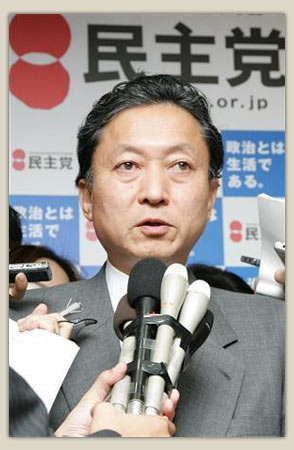The Japanese election is over, and as expected, the Democratic Party of Japan (DPJ) won a significant victory over the Liberal Democratic Party (LDP) that ruled the country almost continuously since 1955. Japanese voters appear to have lost patience with the LDP and Prime Minister Aso, who managed to oversee a staggering 15% annualized drop in GDP during his tenure — oops! There were several reasons for the DPJ’s landslide. First, they had a more organized game plan, spelling out their promises to voters in their now-famous “Manifesto” (clearly modeled on the old Contract with America). Another factor was the poor relationship Prime Minister Aso had with the media, being openly combatative with them at times, which affected the coverage his party received, especially from certain news channels. And as has been pointed out on political talk shows here, another factor in the change of parties was what’s known as migi ni narae, (migi ni nah-rah-eh), an old army command that literally means “copy the person on your right!” Translatable as “me, too-ism,” the word describes the tendency for Japanese to suddenly decide to move as a group towards a certain goal when they perceive that others are headed that way, too. The DPJ has made certain specific promises to voters, including monthly payments of $280 per child to families with kids while ending deductions for spouses (to encourage women to get into the workforce), and making all the freeways free — of course all without any discussion of how the revenue for these programs will be generated. It’ll be interesting to see how it all plays out.

After a decisive election win, Japan’s next Prime Minister will be Mr. Hatoyama.














